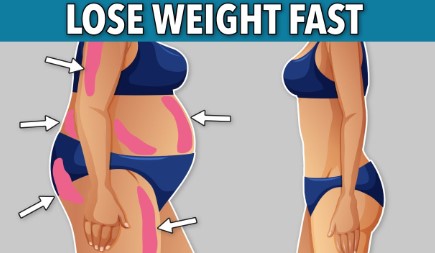Ever wondered, “What should I weigh?” Or maybe you’re constantly trying to figure out whether your weight is on the “healthy” side of the scale based on your height and age.
Let’s break it down into something super simple so you can figure out your ideal weight—without the math headache. Whether you’re wondering about a “weight chart by age” or just curious about “what is a good BMI,” we’ve got you covered!
Why Weight Matters More Than You Think?
Alright, let’s get real. Weight is more than just a number on a scale; it’s a key player in how you feel and function every day. But trying to figure out how much should I weigh can sometimes feel like a guessing game, especially with so many variables like age, muscle mass, and, of course, height.
It’s no secret that being at a healthy weight helps you live your best life. From boosting energy to keeping chronic diseases at bay, maintaining the right weight for your height and age is just a game-changer. But how exactly do you determine what’s right for you? Well, it’s more science than magic.
Let’s Talk About BMI: Is It Actually Useful?
We can’t talk about finding the ideal weight without bringing up BMI (Body Mass Index). So, what’s the deal with this little metric? In short, BMI is a quick way to see if your weight fits into the “healthy” range based on your height.
Here’s how BMI works:
- BMI = (your weight in kg) / (your height in meters²)
- You end up with a number that puts you into one of these categories:
- Underweight: BMI < 18.5
- Normal weight: BMI 18.5-24.9
- Overweight: BMI 25-29.9
- Obesity: BMI 30 or higher
So, what is a good BMI? Ideally, you want to land in that sweet spot between 18.5 and 24.9 for optimal health. But keep in mind, that BMI doesn’t consider muscle mass or fat distribution, so take it with a grain of salt—especially if you’re athletic or have a more muscular build.
Weight for Height: The Big Equation
Weight and height are besties when it comes to calculating your ideal weight. Here’s a general idea of where you should be based on your height:
| Height (ft/in) | Ideal Weight (lbs) |
| 5’0″ | 100-125 |
| 5’5″ | 115-140 |
| 5’10” | 130-165 |
| 6’0″ | 145-190 |
But don’t stress if you don’t fit perfectly within these numbers. Everyone’s body is different, and there are tons of factors (like age and activity level) that influence what should I weigh. Those numbers are more guidelines than hard rules.
Weight Chart by Age: Does It Even Matter?
If you’ve been searching for a weight chart by age, you’re not alone. People often assume that age plays a huge role in determining the ideal weight. And while age can influence things like metabolism, it’s not as critical as you might think.
Here’s the tea: As we get older, our metabolism slows down a bit, which can make it easier to gain weight. But the amount of weight you should aim for doesn’t change drastically just because you’ve hit a new decade of life. What’s important is maintaining a healthy lifestyle through every stage of life, from your 20s to your 60s and beyond.
That said, here’s a quick look at how average weight shifts across different ages:
| Age (years) | Average Weight (lbs) |
| 20-29 | 155-170 |
| 30-39 | 165-180 |
| 40-49 | 170-190 |
| 50-59 | 175-200 |
Again, these are averages, not prescriptions. What’s more important is staying active, eating well, and feeling good in your body—whatever the scale says.
How Much Should I Weigh? It’s More Than Just Numbers
Okay, so we’ve covered BMI and average weights, but let’s dig deeper. If you’re still asking, how much should I weigh, it’s time to factor in muscle mass, activity levels, and overall health.
Muscles are heavier than fat, so if you’re hitting the gym or lifting weights, your actual weight might be higher than someone who doesn’t exercise but has the same BMI. This is where the good old “feel-good factor” comes in—if you feel fit, strong, and healthy, that’s a better measure than any number on a scale.
Ideal Weight and Health: Striking the Balance
Here’s a secret: The ideal weight isn’t about being skinny or fitting into a perfect category. It’s about balancing your weight with your body’s needs and your lifestyle.
Wondering what should I weigh? Start by asking yourself:
- Do I feel energetic and healthy most days?
- Can I do the activities I love without getting tired?
- Am I eating a balanced diet and staying active?
If the answer is yes to most of these, you’re probably at a healthy weight—even if you’re not fitting into some arbitrary chart. Remember, weight for height is just one piece of the puzzle, and it’s not the only thing that matters.
Weight Loss and Maintenance: Finding Your Groove
For those looking to lose weight or maintain their current weight, here are some simple tips:
- Eat Balanced Meals: Focus on whole foods—like fruits, veggies, lean proteins, and whole grains.
- Stay Active: Whether it’s walking, running, yoga, or lifting weights, find an activity you love and stick with it.
- Track Progress: While the scale can be a useful tool, also pay attention to how your clothes fit, how you feel, and your energy levels.
- Hydration: Drinking enough water helps with metabolism and keeps you feeling full.
- Consistency: Small, daily habits add up to big changes over time.
Don’t Forget Mental Health
It’s easy to get caught up in the numbers game, but your mental health is just as important as your physical health. Stress, anxiety, and poor sleep can all affect your weight, so it’s crucial to take care of your mind, too.
If you’re feeling overwhelmed by weight loss goals or numbers on a chart, take a step back. Focus on feeling good and living a balanced, happy life.
Calculating Your BMI: A Quick How-To
Here’s how you can calculate your BMI at home:
- Multiply your weight in pounds by 703.
- Divide that number by your height in inches.
- Divide again by your height in inches.
For example, if you weigh 150 lbs and are 5’5” (65 inches):
- 150 x 703 = 105,450
- 105,450 ÷ 65 = 1,621.54
- 1,621.54 ÷ 65 = 24.9 (a healthy BMI!)
And there you go—a quick snapshot of where you stand.
But, What About Body Composition?
One thing people often forget when figuring out how much should I weigh is body composition. Not all weight is created equal. Two people might weigh the same, but one could have a higher percentage of muscle, while the other has more fat. This difference can drastically change how their bodies look and feel. Muscle is denser than fat, meaning you might weigh more even if you’re lean and fit.
Consider measuring body fat percentage in addition to weight. Tools like body fat scales, calipers, or even professional scans can give you a more complete picture of your overall health beyond just your BMI or weight for height.
Also, remember that what is a good BMI can vary based on factors like muscle mass and body composition, so focus on overall health rather than just numbers on a scale.




2 Comments